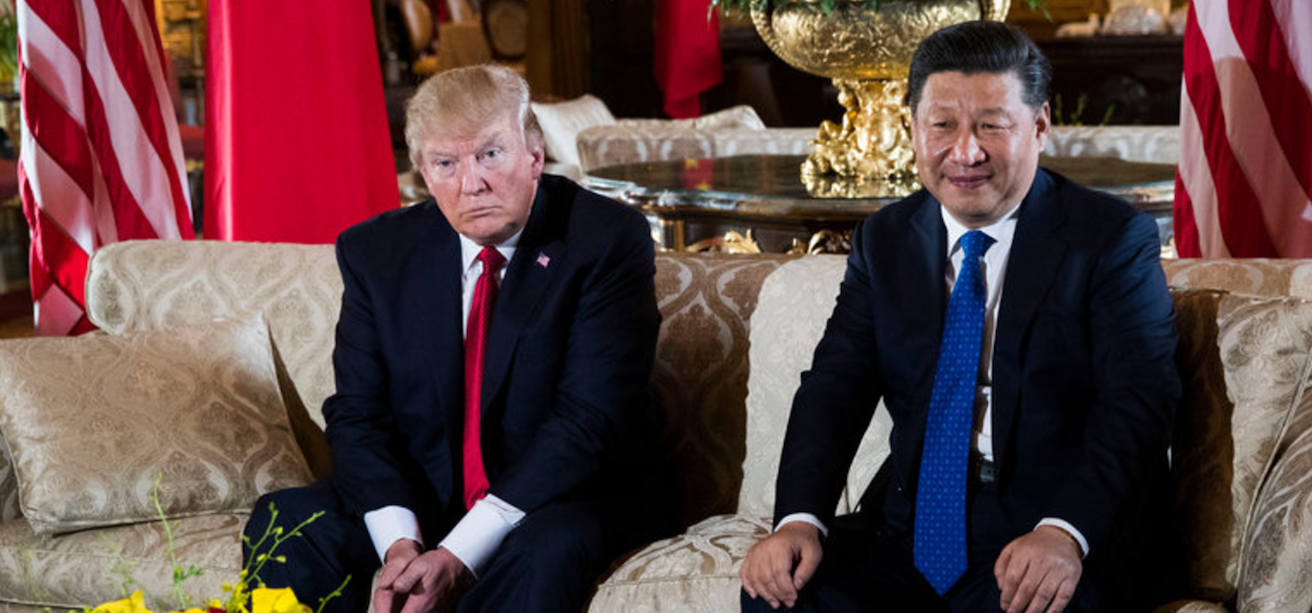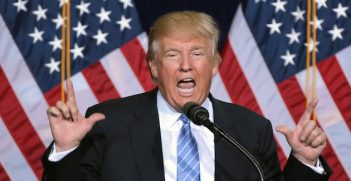How to Win Friends and Influence People in Boao

At this week’s Boao Forum, Chinese President Xi Jinping spoke of protecting and promoting globalisation. But trade tensions between China and the US continued to simmer and Australia wasn’t even invited.
In recent weeks, the world witnessed the rapid escalation of tension between China and the United States. Within a day of the US listing 1,333 Chinese products that would be hit with tariffs to the value of USD$50 billion (AUD$ 64 billion) on 4 April, China had responded in kind with its own tariffs on 106 American goods.
Trump’s additional threat of punitive tariffs worth $100 billion on 5 April was met swiftly with a threat from China to do the same. On top of the $3 billion tariffs already imposed by both countries, it is little wonder that newspapers across the globe began talking of a “growing trade war” between two countries “now in battle”.
Xi Jinping’s keynote speech at the Boao Forum for Asia on Monday (9 April) may have changed all that. In it, he stressed China’s lead role in defending globalisation and multilateralism, declaring a “new phase of opening up” involving broadened market access, eased restrictions on foreign firms, lower import tariffs and a more attractive investment environment. The centrepiece of China’s foreign policy, the Belt and Road Initiative (BRI), would also “contribute significantly to a more fair, peaceful and prosperous world,” according to Xi.
This speech is one of many moves in an evolving game of geoeconomics being played out by the leaders of the world’s two superpowers. At this stage, Xi Jinping is looking like the clear victor in the game.
Geoeconomics can be defined as the use of economic tools to promote national interests and achieve geopolitical goals or, even more simply, how to win friends and influence people. This is not something that comes easily to China, and no more so than now. Since 2017, there has been growing anxiety across the globe, and in the West in particular, about how China’s rising wealth and power are challenging the rules-based, liberal economic order. Xi Jinping’s latest commitment to that order—in words at least—should alleviate some, if not all, of that anxiety. And that makes it a step in the right direction.
Free trade is the foundation of the international economic order that has been defined, defended and led by successive presidents of the United States. For more than half a century, this leadership earned the US many friends, including most of the world’s economists. In contrast, Donald Trump’s ‘America First’ agenda and his protectionist stance have been the source of much anxiety among even America’s staunchest allies, including Australia.
That anxiety is also evident in the US itself. In their 2016 book War by Other Means: Geoeonomics and Statecraft, Robert Blackwill and Jennifer Harris from the US Council of Foreign Relations identified the Trans-Pacific Partnership (TPP) as the number one component of a much-needed revival in US geoeconomic strategy in the Asia-Pacific region. The strategy was needed to counteract China’s growing geoeconomic strength.
The TPP—an ambitious trade deal proposed by then President Barack Obama and involving 12 economies in the region—would not only have tied together America’s friends in Asia, but also signalled its commitment to free trade. Blackwill’s Foreign Policy article in July 2017 offers five mistaken reasons behind Trump’s decision to withdraw from the TPP, including his argument that the deal had been designed to allow China “to come in through the back door and totally take advantage of everyone”—a curious claim given that it had in fact explicitly and intentionally excluded China. That the end of the TPP (until recently revived without the US) made the BRI by far the most prominent geoeconomic strategy in the region seems to have been lost on Trump. Xi was no doubt delighted.
Throughout his presidency, Trump has tweeted erratically on the subject of how America will use its economic might to achieve its geopolitical goals. In 2017, these tweets included a series of carrots and sticks aimed at encouraging China to deal with an increasingly recalcitrant North Korea.
In 2018, the focus shifted onto the bilateral deficit with China, but quickly extended to the world at large, as in his 4 March tweet: “We are on the losing side of almost all trade deals. Our friends and enemies have taken advantage of the US for many years. Our Steel and Aluminium industries are dead. Sorry, it’s time for a change! MAKE AMERICA GREAT AGAIN!”
Trump’s decision to exempt Australia from these tariffs should not lead anyone to conclude that all will be well as long as we remain one of America’s most important friends. He is far more fickle than that.
And Xi, in turn, is far more strategic. China is now prepared to dish out economic punishments to its adversaries when they act against its national interests, even if that comes at a cost to its own citizens: the retaliatory tariffs already imposed on the US are the latest case in point. The Philippines, Japan, Taiwan and South Korea have also experienced this in recent years, with China boycotting their goods and banning tour group visits.
China’s displeasure with Australia’s proposed new foreign interference laws has already resulted in stalled diplomatic visits and, just this week, the revelation that no Australian government minister was invited to the Boao Forum. There is little reason to think that the punishment will end here, unless the Australian government can sort out its own geoeconomic strategy, and fast.
An even greater concern is that, despite all of his rhetoric, Xi Jinping’s grip on power in China is inherently illiberal and increasingly so. The decision at the 19th Party Congress in October last year to incorporate his own ‘Thought on Socialism with Chinese characteristics’ into the Chinese constitution, along with the change this year enabling him to remain China’s core leader indefinitely, are strong indications that Xi Jinping intends to do things his way. And he has made it clear in the past that a “stronger, bigger, better” state sector underpinned by state-backed financial institutions under the control of a one-party state led by him is integral to that. Xi has his work cut out for him convincing the rest of us that this is the kind of superpower we can comfortably call our friend.
For the time being, though, we can rest easy knowing that China and the US are not in fact on the brink of a “war by other means”. According to Donald Trump’s tweet just days ago:
President Xi and I will always be friends, no matter what happens with our dispute on trade. China will take down its Trade Barriers because it is the right thing to do. …Great future for both countries!
Australia’s position in all of this would be far less complicated if only Trump could do the right thing too.
Associate Professor Jane Golley is an economist and acting director at the Australian Centre on China in the World at The Australian National University.
This article is published under a Creative Commons Licence and may be republished with attribution.





